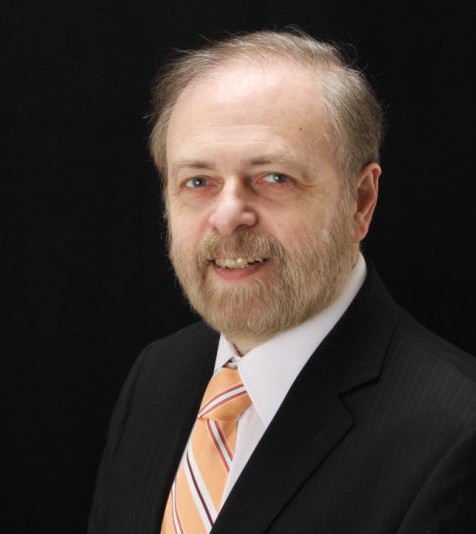By Rabbi Mordechai Levin
The Torah is the foundational text of Judaism. The Torah scroll is our most revered physical possession. When it is lifted after it has been read during the religious service, the congregation chants “vezot haTorah asher sam Mosheh lifnei benei Israel al pi Adonai, beyad Moshe”: This is the Torah that Moses set before the people Israel; the Torah given by God, through Moses.
The magbiah – the person lifting up the scroll – exposes at least three columns before lifting it. As the Torah is being raised, the writing must be shown to those in attendance, so that everyone may catch a glance of the script.
The Sephardi custom is to lift the Torah scroll before the reading of the Torah begins. This was the original custom as recorded in the 8th century Massekhet Soferim. Rabbi Yosef Caro (1488-1575), author of the legal code Shulhan Arukh, reaffirmed that this is the way to do it. While the Sephardis continue this original custom, the Ashkenazis modified it by lifting the Torah after the reading. It is mentioned by Rabbi Moshe Isserles (1525-1572), who stated that “”it has become the custom to lift it afterreading from the Torah.”
The verse “This is the Torah that Moses set before the people Israel; the Torah given by God, through Moses” is an artificially created verse made up of two separate quotations. The first part of our quotation (Deuteronomy 4:44) -“vezot haTorah asher sam Mosheh lifnei benei Israel” – is a sentence complete unto itself. The rest of the quotation – “al pi Adonai, beyad Moshe,”–is an Ashkenazi addition to the original custom mentioned in Massekhet Soferim. The Sephardi liturgy doesn’t include it. The quotation comes from the book of Numbers (4:37, 45), in which it appears as the concluding phrase in both verses. This does not refer to the Torah at all, but to the Israelites’ path through the desert. The first reference to the phrase as we have it today occurs in the Siddur of Rabbi Isaiah Horowitz (1565-1630).
Conservative Judaism applies historical, critical methods to the study of the biblical text. It recognizes that all texts were written in given historical contexts. It views the Torah as the creation of generations of inspired prophets, priests, and teachers, beginning with the time of Moses, but not reaching its present structure until the 6th and 5th century B.C.E. So knowing what we know from contemporary study of the Hebrew Bible, in what sense can we say that “this is the Torah that Moses set before the people Israel”?
It means that the Torah is fundamental to our people from the days of Moses until our time. Saadia Gaon (882–942), rightly asserted in his book Emunot Vedeot, that Israel is a people only by virtue of its Torah. By this, he meant that without Torah, there is no Judaism; and without Judaism there is no Jewish people.
It also means that it is a source of wisdom inspired by God. According to Rabbi Abraham J. Heschel (1907-1972), “when one gives a gift of love to another, part of the giver is given with the gift. The Torah is God’s gift to his creation and to his creatures. When God gives the Torah, it is as if he gives of Himself … The Torah, which comes from God, carries the presence of God within its words. Since God is the source of all wisdom, the Torah is the treasure house of all wisdom.”
In his introduction to the Etz Hayim humash that we use at our synagogue, Rabbi David Lieber (1925-2008), wrote, “Jews view the Torah as the teaching par excellence about God’s relationship to the world and to the Jewish people, about God’s covenant with the people Israel, and about the laws by which they are to live that they might be a holy people….Like the ancient Rabbis we do not limit Torah to the five books of Moses. Torah represents the spiritual and intellectual entirety of Jewish religious tradition that continues to grow and develop… It provides an endless source of religious insight and inspiration and its enduring vitality transcends generations.”
However we interpret the words “This is the Torah that Moses set before the people Israel; the Torah given by God, through Moses,” this verse has become a powerful and inspirational assertion of the importance of the words of the Torah for the Jewish people as a whole, and of each of us as individuals. Next time we sing this verse, let us pause for a moment to reflect on this.
 is the rabbi of Congregation Beth Israel in Munster, IN. He received his rabbinic ordination from the Latin American Rabbinical Seminary, and is a member of the Rabbinical Assembly. In 2010, he was awarded an Honorary Doctorate of Divinity from the Jewish Theological Seminary in New York City for his years of dedicated service to the Conservative movement and the Jewish community...
is the rabbi of Congregation Beth Israel in Munster, IN. He received his rabbinic ordination from the Latin American Rabbinical Seminary, and is a member of the Rabbinical Assembly. In 2010, he was awarded an Honorary Doctorate of Divinity from the Jewish Theological Seminary in New York City for his years of dedicated service to the Conservative movement and the Jewish community...